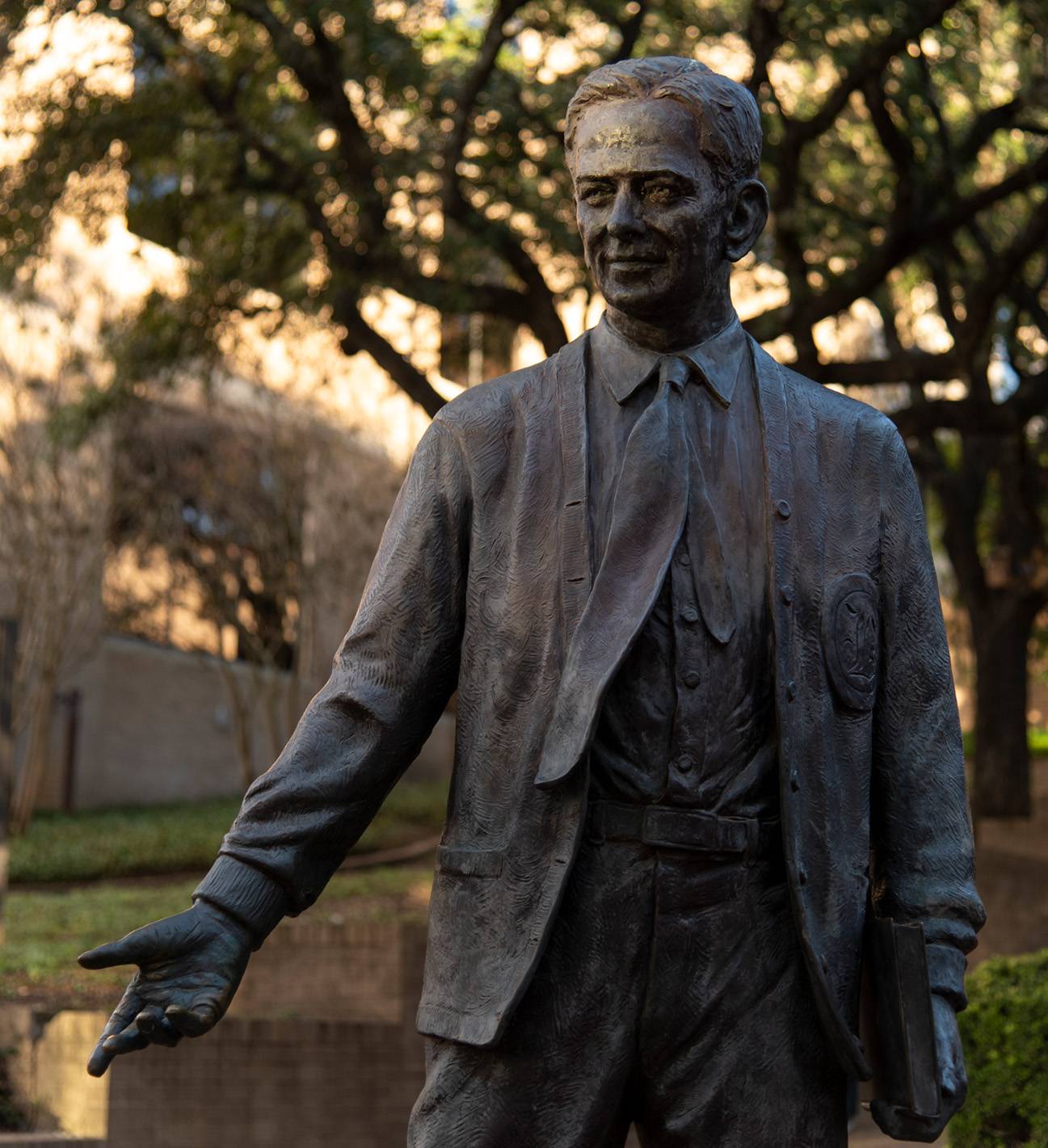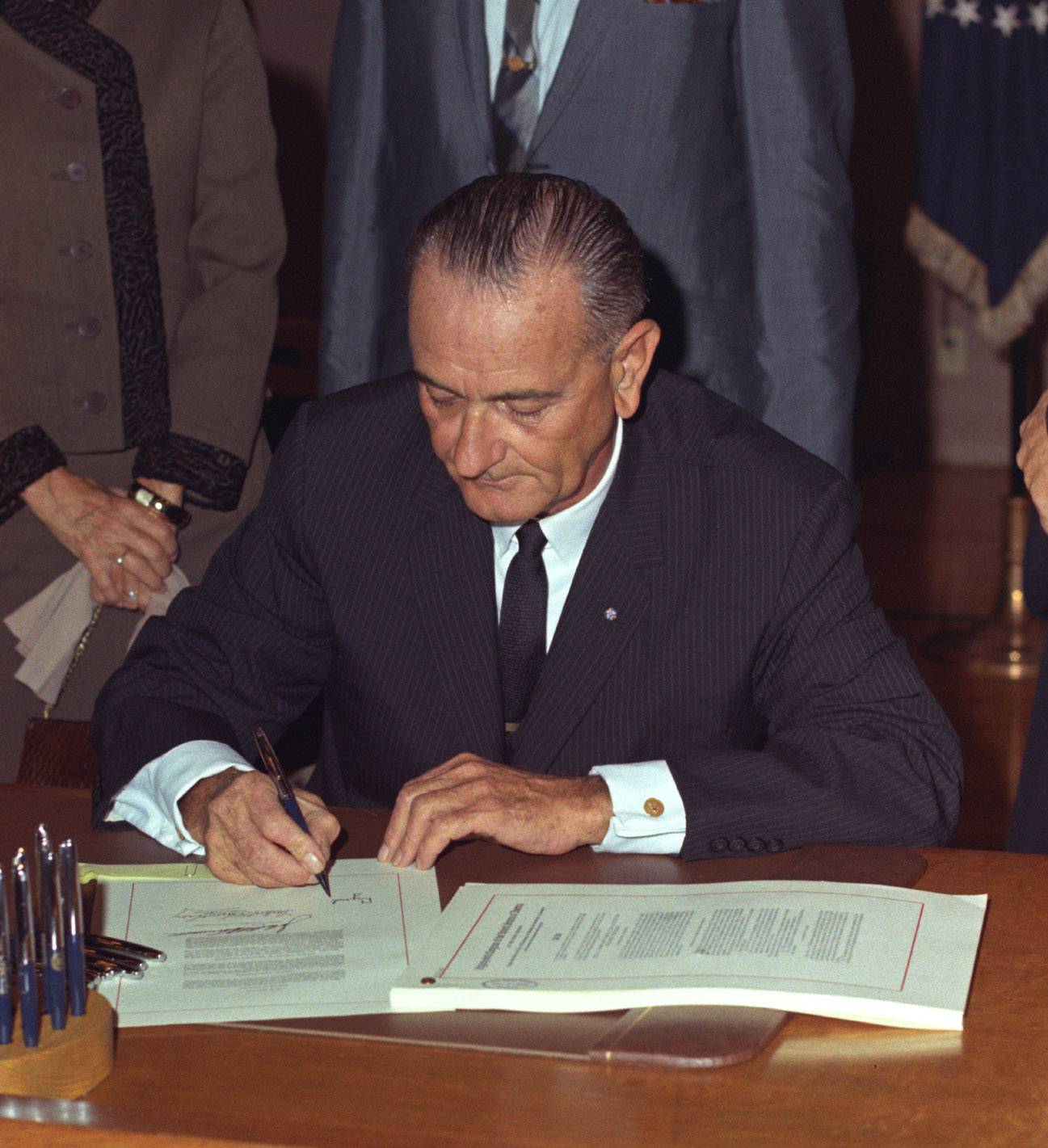Excitement reverberated across Texas last fall when the Commission on Presidential Debates announced its selection of Texas State University to host a general election debate on Sept. 16, 2024.
Mic Check
Texas State University prepares to host a 2024 presidential debate, offering students unique opportunities for hands-on learning while boosting the university’s national presence and impact.
Though the news came as a surprise to most, TXST officials had been working quietly for years to lay the groundwork for a successful debate bid. The university community is now preparing to take center stage in the political universe when nearly 100 million viewers tune in for a high-stakes affair in the American democratic process.
“This is a great example of Texas State’s growing national presence, name recognition, and value to the country,” said Eric Algoe, TXST’s executive vice president for operations and chief financial officer. “Equally important, this is so meaningful for our students and alumni — the opportunity to learn about the American political process and have a front-row seat to all of this is just phenomenal.”
 Texas State first got into the debate mix in the summer of 2020 when the commission approached the university as a potential replacement site after the University of Michigan dropped out as host for a debate scheduled for October of that year. TXST officials decided against scrambling to apply for that event, but the experience planted the seed for a full-scale effort when the debate commission called for 2024 applicants.
Texas State first got into the debate mix in the summer of 2020 when the commission approached the university as a potential replacement site after the University of Michigan dropped out as host for a debate scheduled for October of that year. TXST officials decided against scrambling to apply for that event, but the experience planted the seed for a full-scale effort when the debate commission called for 2024 applicants.
Beyond offering a suitable venue — Strahan Arena at the University Events Center — TXST’s application accounted for everything required to handle the influx of media and political campaigns, from regional hotel capacity to ample infrastructure for facilities, transportation, telecommunications, cybersecurity, policing, and catering.
“It’s a huge logistical exercise to pull this off, second only to the Super Bowl in terms of live television audience,” Algoe said. “We spent a significant amount of time and effort making sure that we had a good answer to every one of the challenges associated with hosting.”
Now that the debate is on the books, the debate planning committee is advancing preparations, and educators across the university are working to make the most of the opportunity for students.
In the School of Journalism and Mass Communication, for example, classes starting this spring are incorporating the debate into their curricula. A Student News Service will provide coverage of the debate throughout the season; students will create virtual reality videos to introduce viewers to campus; and students will conduct surveys and public relations campaigns to engage their fellow students in the debate. The list goes on.

“One of our main goals always is to get students outside of the classroom and involved in experiential learning,” said Debra Price, the school’s PR program coordinator. “This is the perfect opportunity to engage students in a once-in-a-lifetime chance to apply their skills and boost their marketability for jobs after working on a debate.”
The same goes for the university as a whole, Algoe noted.
“The debate opens doors for us in ways that very few other things could, like when we go to D.C. to meet with elected officials and federal agencies to talk about research projects or issues in higher education,” he said. “There’s a name recognition and gravitas that we didn’t have before. TXST’s brand and the value of our students’ degrees have been enhanced.” ★
To learn more visit debate.txst.edu.